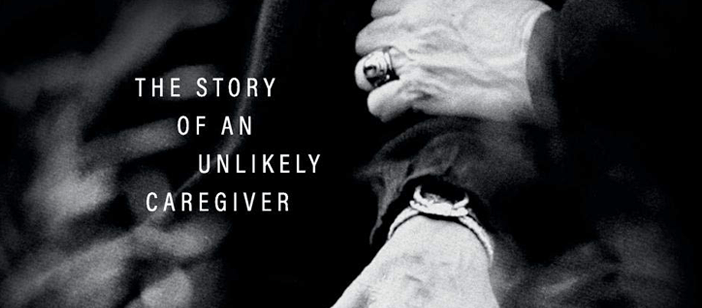From the Publisher: “Nobody ever expects to become the caregiver for someone they love, but the reality is most of us will be at some point. This all-too-common scenario is exactly what author George Shannon encountered, which took him by surprise and changed the course of his life forever. He details his surprising journey into being a caregiver in his new book, The Best Seven Years of My Life: The Story of an Unlikely Caregiver which he co-wrote with his son, Chad Patrick Shannon.
With retirement approaching and his marriage on cruise control, George left for a much-needed vacation with his wife Carol. Their lives changed forever on their final night in Cabo San Lucas, when George awoke to find that Carol had suffered a debilitating stroke. As they rushed back to their hometown of Pittsburgh, questions, doubts, and fear consumed George’s mind: Would Carol survive? What level of care would she need? Would George be up to the task of serving as her caregiver, a role he knew nothing about?
During the next seven years, George and Carol would face a series of medical and personal challenges that would relentlessly test their resolve. Every day, George would help Carol meet her needs, and every night, he would go to bed wondering whether he had done enough. He soon discovered that the caregiver role comes with unexpected rewards—gifts that would leave him a better, happier, and more fulfilled man. The Best Seven Years of My Life is the tale of an unlikely caregiver, a journey to rediscovering humility, and the story of a man blessed with the amazing chance to fall in love all over again.”
In the Press: “A Distant Husband Becomes Caretaker and Falls Madly in Love Again”—New York Times (February 12, 2019)
The Healing Power of Humility
 All my life, I had convinced myself that taking charge was a virtue, and it certainly served its purpose of helping me building my business and therefore providing for my family. That tactic required that I put me first. Yes, it gave me the strength to see anything through, including now, as I was the primary caregiver for my ailing wife. But it also originally stemmed from a desire to serve my world, my needs, and my ego. Even now, I still hadn’t let go of my goal of getting Carol healthy again, and had been banking my hopes on the idea that she was going to get better. But she wasn’t. And now, grappling with my own fresh cancer diagnosis, everything seemed even more out of my control than ever before.
All my life, I had convinced myself that taking charge was a virtue, and it certainly served its purpose of helping me building my business and therefore providing for my family. That tactic required that I put me first. Yes, it gave me the strength to see anything through, including now, as I was the primary caregiver for my ailing wife. But it also originally stemmed from a desire to serve my world, my needs, and my ego. Even now, I still hadn’t let go of my goal of getting Carol healthy again, and had been banking my hopes on the idea that she was going to get better. But she wasn’t. And now, grappling with my own fresh cancer diagnosis, everything seemed even more out of my control than ever before.
I realized if I was going to last in the face of my cancer and a progressively ailing wife, I needed to find a new path. The question then arose as to which route to take. I dove into reading one of my favorite books, So I’m Not Perfect: A Psychology of Humility by Robert J. Furey, looking for some sort of guidance, and when I came across these words. I remembered them as clear as the day I’d jotted them in my notebook many years prior.
“Our very first problem is to accept our present circumstances as they are, ourselves as we are, and the people about us as they are.”
There were no more fixes, but acceptance does not equal quitting. Like a fog lifting, my mind became still, perhaps for the first time in my life, but certainly for the first time in the last two decades. Accept the cancer. Accept me. Accept Carol. Accept the world around me. I wanted to make my life about her, all about her, for the rest of her life—or mine, if that was the case. To be a vessel for her happiness, fulfillment, and enjoyment of her life.
Cancer was a difficult prospect, but I couldn’t change it. In some ways, it made my desire to be fully selfless more intense. If I was destined to die before Carol, then I wanted to make sure I went down having given her everything I had. The thought that I would get to spend the sunset phase of my life with my one-of-a-kind wife made me feel almost giddy in that moment.
Before closing the book that day, I found one more critical lesson: “If I do not allow for my own imperfection, I will never really know myself.”
It wouldn’t be easy. Life would throw me curveballs and some days would be quite difficult. If I lost sight of this truth, I would slip back into the same patterns and allow my old self to rule the day. Remembering my own imperfection would be the compass to guide the rest of my journey. From this moment on, these became the words I called on whenever I needed to identify my true north.
A few months later, I received news that despite our hopeful last-ditch effort of radiation, my cancer would never be cured, and our next step would be to find ways to manage the slow-growing disease. We’d start hormone therapy soon and eventually move on to chemotherapy.
As I left the cancer center and got in my car, I waited for the swirling thoughts of injustice to clutter my mind, but they failed to appear. Instead, I found myself thinking about the practical implications of taking care of Carol during chemo treatments. We’d been having such fun and so many laughs recently, and had spent more time together in this period than we had in the whole of the decade prior. I didn’t want news of a terminal illness to ruin all that, so I decided I’d downplay it with her.
When I entered our front door, I found Carol in her usual spot in her chair, her tiny legs propped up on the ottoman, a magazine in her lap as she brushed her lips with a business reply card in the way that always soothed her.
Her eyes met mine. “Oh, there he is,” she said, as she often did when eager to see me.
I marched straight to her and gave her a long hug, and the mantra crossed my mind as naturally as the blood flowed from my heart: Accept me, accept her, and all your circumstances.
I really should have expected the blunt question that followed.
“Are you going to die or something?”
Some younger version of myself would have jumped all over that remark as being less than tactful. Instead, I focused on how much I enjoyed her offbeat and frank manner.
“I’ll be with you for all your days,” I whispered in her ear. “All your days. Do you understand?”
Husband, Caregiver and Author Shares Details of New Memoir on NPR:
Excerpted from The Best Seven Years of My Life: The Story of an Unlikely Caregiver by George Shannon and Chad Patrick Shannon. All rights reserved. No part of this excerpt may be reproduced or reprinted without permission in writing from the author.

























